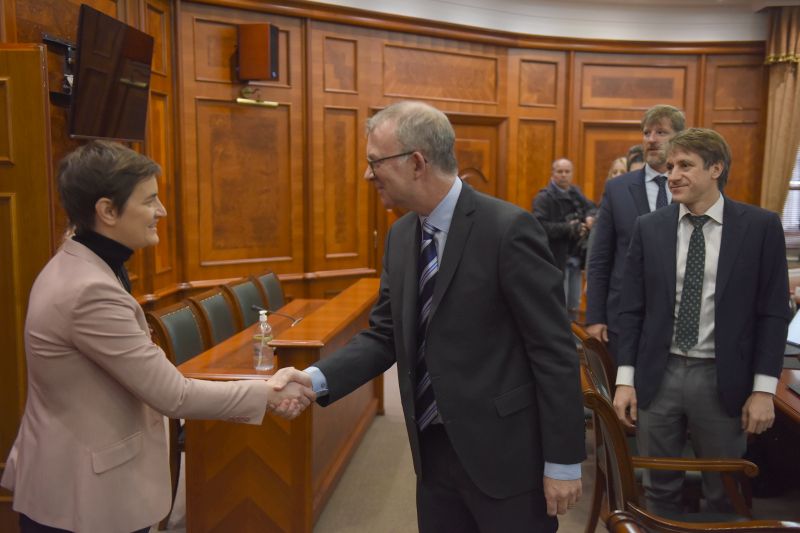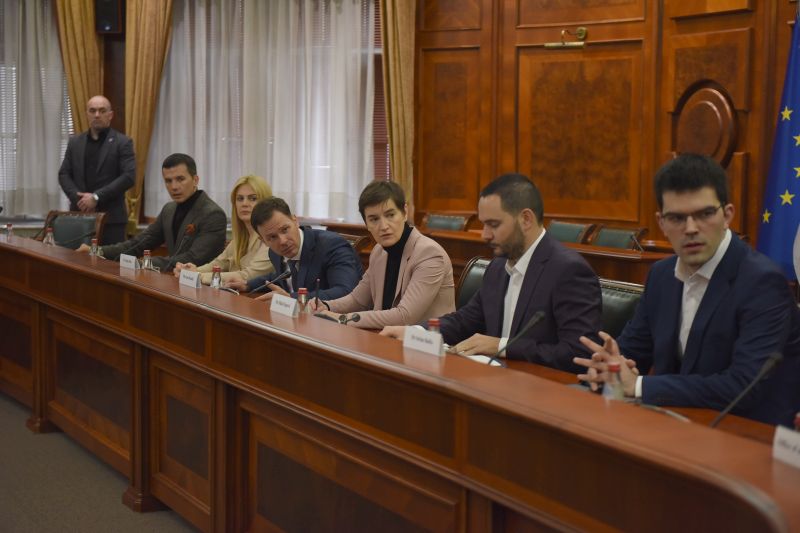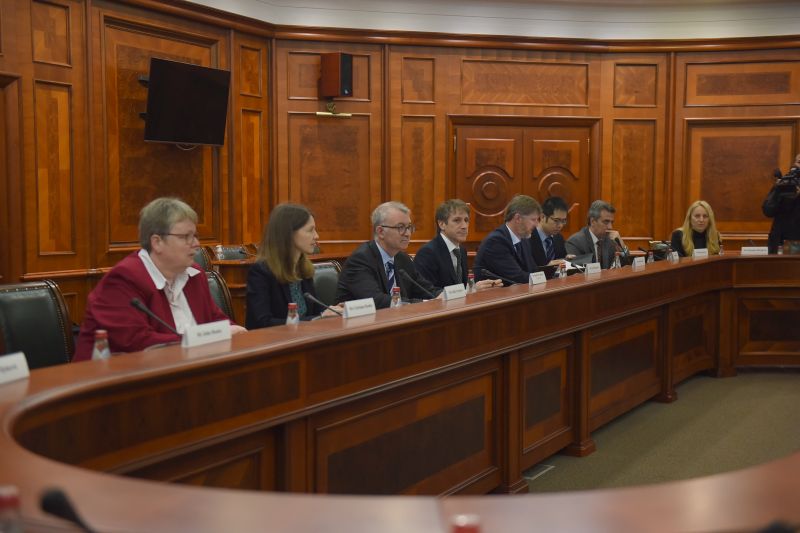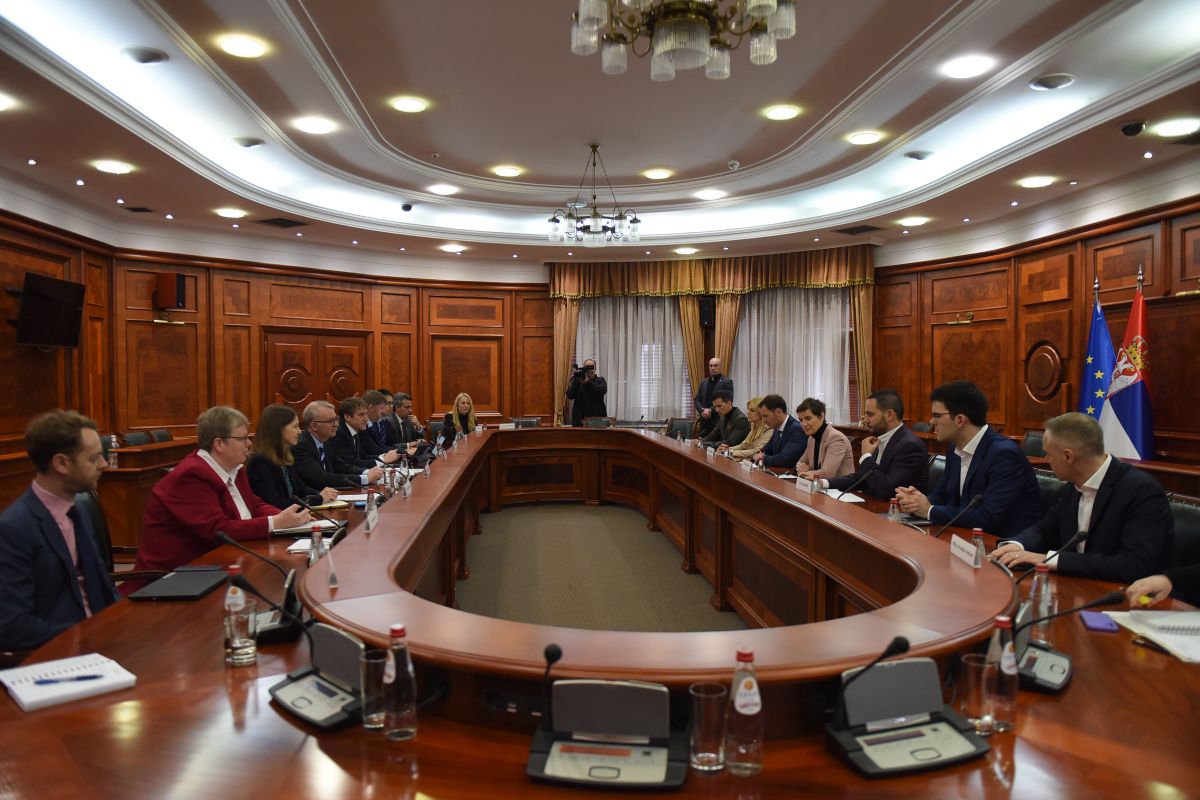Prime Minister Ana Brnabic met today with a Mission of the International Monetary Fund (IMF) led by Donal McGettigan, as part of the first review of the current stand-by arrangement, which the Republic of Serbia has been implementing since December 2022.
- Serbia
Get to know Serbia
- Citizens
Culture and science
Health services
Pension and disability insurance
- Business
Employment
Economy
- Media
- Government
- Contact
Keep in touch
Keepin touch
Whether you have a question, comment, suggestion or any problem in the purview of the government, send us your message and we will try to respond as soon as possible. If your problem is not in our purview, we will forward your message to the relevant institution.
Serbia achieves good macroeconomic results
The stand-by arrangement aims to preserve macroeconomic and financial stability, strengthen the economy's resilience in the face of the global energy crisis, and encourage sustainable growth.
Brnabic pointed out that Serbia is achieving good economic results, despite numerous challenges, and that the current priority is the restructuring of the energy sector.
She added that a lot needs to change in this regard, as well as that a detailed investment plan in the energy sector is being prepared, which the IMF representatives praised.
The Prime Minister said that the government is fighting every day for even better results than in 2022, and that it is important to find additional sources of growth.
According to her, exports in the IT industry last year amounted to €2.7 billion, which is 45 percent higher than in 2021.
In January of this year alone, there was a 42 percent increase in exports in that industry compared to the same month of 2022, Brnabic said, adding that there is great potential in that industry, and that the government's goal is to reach exports of €4 billion.
The Prime Minister also stated that biotechnology can be an additional source of growth, that in this context the construction of the BIO4 campus is important, which should attract investment in research and development projects in Serbia, and that efforts will be made to increase the productivity of the economy with the use of artificial intelligence.
Brnabic pointed out that the digitisation of the health system is being worked on, as well as that the Unified Education Information System will provide good data on the basis of which priorities for investments in the education sector will be planned.
She also praised the eInvoice and eFiscalisation projects and pointed out that they are working well.
McGettigan assessed that Serbia achieves good macroeconomic results, that it has good economic growth despite the challenges, as well as impressive figures in terms of foreign direct investments.
He said that the Serbian economy has proven to be resistant to external shocks, and inflation remains to be the only challenge, as it is for other countries in Europe and the world.
According to expectations of the IMF, inflation in Serbia should be 8 percent lower by the end of the year.
He also pointed out that the implementation of the current arrangement is making excellent progress, and that all planned goals have been met so far.
The Head of the IMF Mission particularly praised the "Iskra" project, which includes a system of centralised salaries in the public sector.
McGettigan concluded that the situation in the energy sector is stable, but it is important to monitor it continuously.
The current stand-by arrangement lasts for 24 months, until the end of 2024.
The meeting was also attended by Deputy Prime Minister and Minister of Finance Sinisa Mali.
-
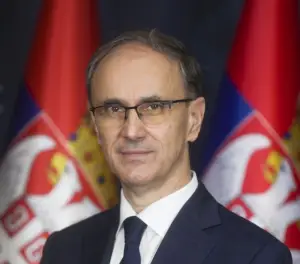 Belgrade, 20 June 2025
Belgrade, 20 June 2025Serbia, Egypt committed to strengthening trade, political ties
-
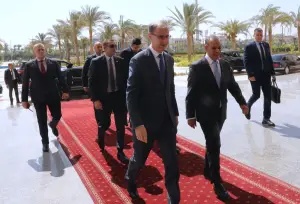 Belgrade/Cairo, 19 June 2025
Belgrade/Cairo, 19 June 2025Gratitude to Egypt for support in evacuating Serbian citizens from Israel
-
 Belgrade/Cairo, 19 June 2025
Belgrade/Cairo, 19 June 2025Potential to enhance cooperation with Egypt in multiple fields
-
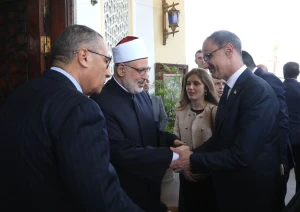 Belgrade/Cairo, 19 June 2025
Belgrade/Cairo, 19 June 2025Serbia committed to preserving peace, understanding among religious communities
-
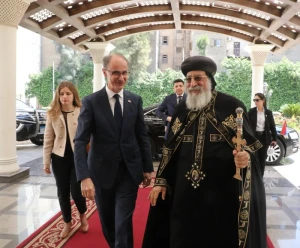 Belgrade/Cairo, 18 June 2025
Belgrade/Cairo, 18 June 2025Serbia firmly committed to nurturing historical, spiritual ties with Egypt
-
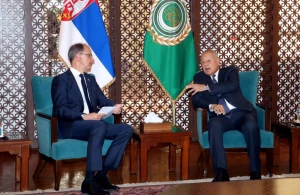 Belgrade/Cairo, 18 June 2025
Belgrade/Cairo, 18 June 2025Exceptionally substantial talks between Macut, Arab League Secretary-General
-
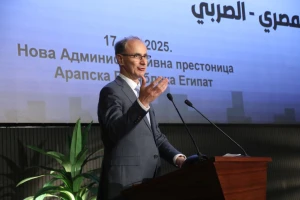 Belgrade/Cairo, 17 June 2025
Belgrade/Cairo, 17 June 2025Considerable space for multifold increase in trade exchange with Egypt
-
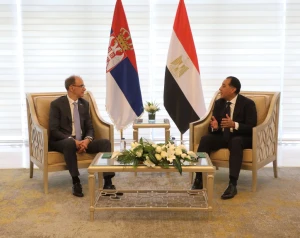 Belgrade/Cairo, 17 June 2025
Belgrade/Cairo, 17 June 2025Egypt is Serbia’s true ally, partner
-
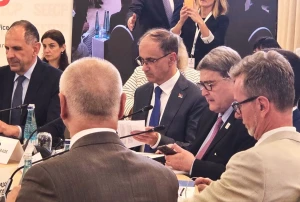 Belgrade/Tirana, 16 June 2025
Belgrade/Tirana, 16 June 2025Serbia fully supports further intensification of regional cooperation
-
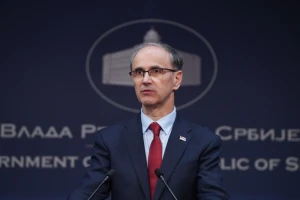 Belgrade, 13 June 2025
Belgrade, 13 June 2025Erasure of Serbian identity in Kosovo and Metohija unacceptable to Serbia

